#henry laurens
Text

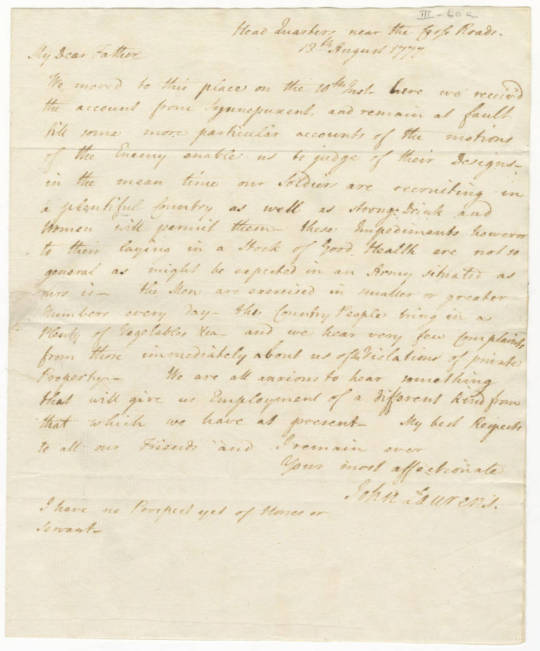
I present two letters, both written by John Laurens in 1777. You should notice that the handwriting in the letters does not match. So what's the difference? Laurens wrote the left letter with his left hand, and he wrote the right letter with his right hand.
The left letter is a letter from John Laurens to Henry Laurens dated October 15, 1777. John Laurens wrote this letter with his left hand as he had been wounded in the right shoulder during the Battle of Germantown on October 4, 1777. He had even used his uniform sash as a sling for his right arm:
If James can purchase a broad Green Ribband to serve as the Ensign of my Office, and will keep an account of what he lays out for me in this way I shall be obliged to him_ My old Sash rather disfigur’d by the heavy Rain which half drown’d us on our march to the Yellow Springs, (and which by the bye spoilt me a waistcoat and breeches of white Cloth and my uniform Coat, clouding them with the dye wash’d out of my hat) served me as a Sling in our retreat from German Town, and was render’d unfit for farther Service_
- John Laurens to Henry Laurens, in a letter dated November 6, 1777
On October 10, 1777, Henry Laurens wrote the following to his son John:
Your favour of the 7th. reached me yesterday Morning at the opening of Congress & as it contained some things new it afforded satisfaction to more than one_ a witty Gentleman from a southern Latitude doubted its having been writ with your left hand & undertook to prove it was dextrously executed_
While the letter pictured above is not the letter Henry was referring to here, we can presume that John was continuing to write with his left hand when he wrote the pictured letter about a week later.
The right letter is a letter from John Laurens to Henry Laurens dated August 13, 1777. This serves as a representation of John Laurens's normal handwriting, which is smoother, has a right slant, and has more spacing between lines.
I've previously discussed John Laurens's handedness, and some have speculated that he was a secret lefty (i.e., he was perhaps naturally left-handed but was trained to use his right hand due to negative perceptions of left-handedness during the time period). It's interesting to see what his handwriting actually looked like with his left hand. While his left-handed writing is not as smooth as his right-handed writing, there still seems to be some dexterity to it.
81 notes
·
View notes
Text
Welcome to my casting for the very serious, extremely scholarly, entirely unfounded, never once requested: Himbo-fication of the America Revolution TV Series that HBO should make asap.
Now, I think we’d all acknowledge there are some founding fathers we just can’t redeem or prettify, I’ve got opinions on them too, and their wives as well and much more, but for our current cause: I present what one might call: Founding Lads. Not all of them. Just the ones I’ve got weirdly settled opinions on. If anyone wants the whole script for this endeavor, it’s been rotting under my bed for seven years. By the time I get it produced these young actors will all be dead, but that’s that and not pertinent to the art of historical Himbo-fication



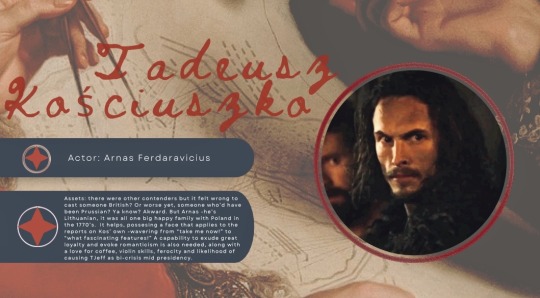
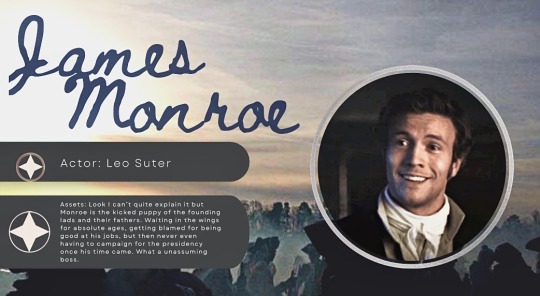
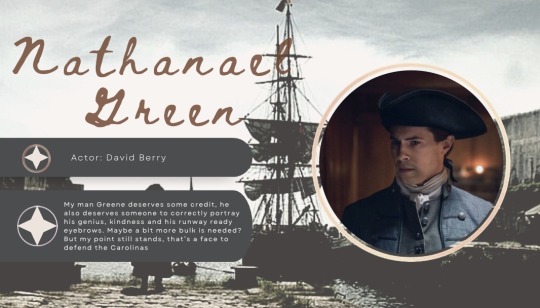
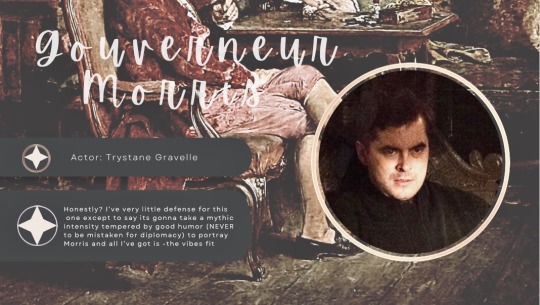
Now for this last one, I have neither a compelling argument nor a graphic, I simply ask you to imagine this amount of sass playing whichever favorite headache of George Washington’s staff that you prefer. My vote goes to Tallmadge.

#american revolution#amrev#amrev fandom#amrev history#amrev art#turn: washington's spies#turn fanfiction#turn amc#turn#john laurens#Tadeusz Kościuszko#Thaddeus kosciuszko#alexander hamilton#Hamilton#marquis de lafayette#lafayette#gouverneur morris#Nathanael greene#henry laurens#historical lams#lams#arnas fedaravicius#matthew beard#Tristan gravelle#David Barry#James Monroe#thomas jefferson#leo suter#benjamin tallmadge#anthony boyle
93 notes
·
View notes
Text
Hear me out!
A non-romantic ship of John Laurens and Angelica Schuyler getting married.
Angelica is Laurens's cover for his homosexuality, and John is the son of Henry Laurens, who was a very rich and respected man.
That way, Angelica marries a rich, well-known man and makes her father happy, and John marries a woman and makes his father happy.
And, because they are officially and legally married to each other, Angelica can voice her opinions publicly since she has even more money and power than when she was "just" a Schuyler sister (I know it didn't really work that way, and that women were ignored and their opinions were dismissed regardless of their stature, but bear with me for the sake of the plot), and John can be going out with men and nobody will know (nobody will out him, since they'll have to out themselves by doing so, and nobody wanted anyone to know they're gay back then), and they'll both be satisfied (pun intended).
Plus, they'll spend their nights sitting in front of the fireplace with blankets talking about Alexander's dreamy eyes.
Somebody please make this happen and tag me in the fanfic!
#alexander hamilton#hamilton#hamilton the musical#hamilton musical#hamilton an american musical#broadway#john laurens#angelica schuyler#philip schuyler#henry laurens#anthony ramos#renee elise goldsberry#lin manuel miranda#wattpad#archive of our own#ao3#fanfiction#fanfic#musicals
78 notes
·
View notes
Text
what I would give to hold a $10 bill right now.. 😕😕
(im British and have never seen one irl but i think Alexander Hamilton is rlly fit so i rlly want one)
#amrev#american history#alexander hamilton#american revolution#john laurens#alexander hamilshit#henry laurens#eliza schuyler
30 notes
·
View notes
Note
What is your favorite John Laurens letter?

It's got to be John's 26 October 1776 letter to Henry. Written two months before John embarks on his return voyage to South Carolina - and on the actual day he gets married to Martha Manning - fully two thirds of the letter are devoted to causes close to John's heart, and he sneaks the biggest news in as a purposefuly dismissive throwaway line. It's just so very him. It's also quite long, so I have numbered and colour coded it for easier reference.
1. Trouble with the post (as usual).
2. I'm going to interpret your comments on hating slavery very generously for you.
3. I already decided all on my own that I'm coming home, but thanks anyway for giving me permission!
4. Okay, dad, I have some really important stuff I need to tell you...
...about naval warfare strategy.
Now--
5. You thought I was done talking about abolishing slavery? Guess again! (Oh and for some reason my West Indian father-in-law gets all uncomfortable when I talk about this?)
6. Oh btw I got married and I'm having a kid, soz.
7. Anyway! 😅 I might go to Prussia for some military training.
8. Everyone's fine, everything's fine, glad you're fine! Oh but let me snitch on cousin Molsy real quick.
145 notes
·
View notes
Text
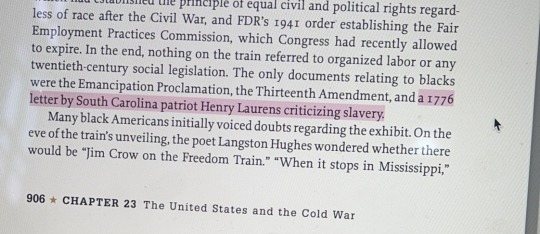
textbook henry laurens mention 😮
25 notes
·
View notes
Text
I am young, I am therefore unexperienced, but every mean in my power, every knowledge in the military way I can have got since the first days of my life, every thing nature could have granted to me, all my exertions, and the last drop of my blood, schall be employed in showing my acknowledgement for such a favor and how I wish to deserve it.
Marquis de La Fayette to Henry Laurens, January 26, 1778.
Idzerda Stanley J. et al., editors, Lafayette in the Age of the American Revolution: Selected Letters and Papers, 1776–1790, Volume 1, December 7, 1776–March 30, 1778, Cornell University Press, 1977, p. 253.
#quotes#letter#1778#marquis de lafayette#la fayette#french history#american history#history#american revolution#henry laurens
46 notes
·
View notes
Text
THE GRAND FINALE
WHO IS THE TRULY THE WORST FOUNDING FATHER?
THOMAS JEFFERSON VS HENRY LAURENS
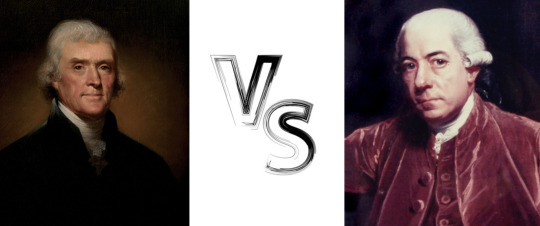
Thomas Jefferson (April 13, 1743 – July 4, 1826) was an American statesman, diplomat, lawyer, architect, and philosopher who served as the third president of the United States from 1801 to 1809. Following the American Revolutionary War and prior to becoming the nation’s third president in 1801, Jefferson was the first United States secretary of state under George Washington and the nation’s second vice president under John Adams.
Starting in 1803, he promoted a western expansionist policy with the Louisiana Purchase and began the process of Indian tribal removal from the newly acquired territory.
Jefferson lived in a planter economy largely dependent upon slavery, and used slave labor for his household, plantation, and workshops. Over his lifetime he owned about 600 slaves.
During his presidency, Jefferson allowed the diffusion of slavery into the Louisiana Territory hoping to prevent slave uprisings in Virginia and to prevent South Carolina secession. In 1804, in a compromise on the slavery issue, Jefferson and Congress banned domestic slave trafficking for one year into the Louisiana Territory.
In 1819, Jefferson strongly opposed a Missouri statehood application amendment that banned domestic slave importation and freed slaves at the age of 25 on grounds it would destroy the union.
Jefferson never freed most of his slaves, and he remained silent on the issue while he was president.
Since the 1790s, Jefferson was rumored to have had children by his sister-in-law and slave Sally Hemings, known as the Jefferson-Hemings controversy. According to scholarly consensus…as well as oral history, Jefferson probably fathered at least six children with Hemings.
---
Henry Laurens (March 6, 1724 [O.S. February 24, 1723] – December 8, 1792) was an American Founding Father, merchant, slave trader, and rice planter from South Carolina who became a political leader during the Revolutionary War. A delegate to the Second Continental Congress, Laurens succeeded John Hancock as its president. He was a signatory to the Articles of Confederation and, as president, presided over its passage.
Laurens had earned great wealth as a partner in the largest slave-trading house in North America, Austin and Laurens. In the 1750s alone, this Charleston firm oversaw the sale of more than 8,000 enslaved Africans.
Laurens’ oldest son, Colonel John Laurens, was killed in 1782 in the Battle of the Combahee River, as one of the last casualties of the Revolutionary War. He had supported enlisting and freeing slaves for the war effort and suggested to his father that he begin with the 40 he stood to inherit. He had urged his father to free the family’s slaves, but although conflicted, Henry Laurens never manumitted his 260 slaves.
---
By popular vote, this final round will run for one full week
Please reblog so we can get the biggest sample size possible and figure who is TRULY the worst
#founding father bracket#worst founding father#founding fathers#amrev#brackets#polls#thomas jefferson#henry laurens#FINAL ROUND#the fact that i have books about both of these men on my bookshelves 💀
137 notes
·
View notes
Text
Father is displeased: the comic.
Based on John's letter to Henry on 3 December 1774, and Henry's reply on 6 February 1775. Brutal stuff.

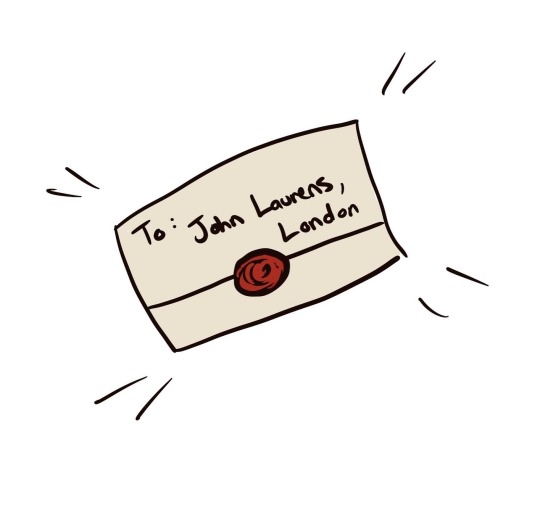



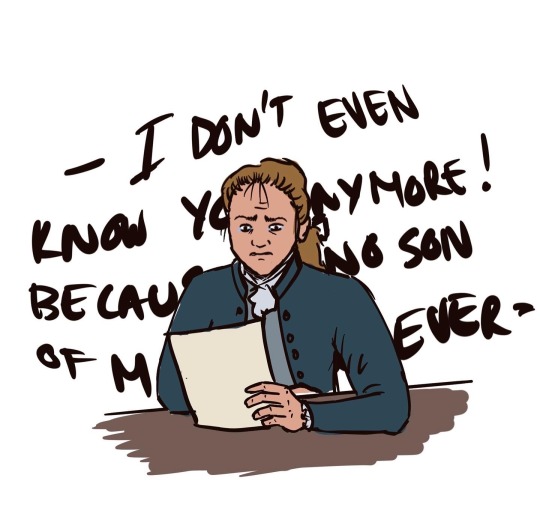

205 notes
·
View notes
Text
The Death of John Laurens: A Summarized Account of August 26th and 27th, 1782
Sources and links to said sources will be listed at the end of this post in Chicago format. This post is purely for educational purposes and is not meant to be used in any research, citations, or criticism of other works or individuals. Please refer back to the list of sources if you intend to use this material in a similar fashion.
What happened on the evening of August 26th, 1782, and the morning following? This was the eve of the death of John Laurens and the events that would occur on the morning on the 27th would go on to be recognized as incomplete, like a puzzle missing some pieces. However, after some recent diving into the topic and looking into letters from Nathanael Greene, Mordecai Gist, and others describing Laurens’ “gallant fall”, I will be presenting a summary and compilation of this information to paint an unfortunate night in an incomplete fashion. There are still things that remain unclear to me, but this may provide some clarity on those who are unaware of what happened.
To set the scene, Tar Bluff, the Combahee Ferry, and the Combahee River in South Carolina is a mix of two sets of scenery in the present day. Nearer to the river and the flatter land, it is thick marshland and difficult to travel through. This is why the ferry was so necessary and useful and likely why the British commandeered it. The drier land higher than the marsh was primarily deciduous and coniferous trees that covered muddy and sandy ground with leaves and pine needles. Today, the area is very dense and overgrown along the riverbanks due to the nature of the region and its climate. It is uncertain what the weather at the time of this engagement might have been, but by referring back to lunar calendars, it is deductible that the night of the 26th-27th was a waning gibbous; the moon would be mostly full but not entirely so and would continue to cast less light in the coming days. Furthermore, it is important to mention that the location that is mentioned that Laurens had been staying and later buried at was roughly thirty-seven miles from where the engagement against the Regulars occurred. Gist mentioned that the main encampment he had made was twelve miles north of Chehaw Neck and roughly fifty miles away from Greene's main headquarters outside of Charleston.
The British were commanded by Major William Brereton and reportedly one-hundred and forty men strong consisting of the British 64th Regiment and volunteers from the British 17th Regiment. The 64th Regiment had been in other engagements where Laurens was present also, including the battles of Brandywine and Germantown as well as the much later and much more influential Siege of Charleston in 1780. This was not the end of the 64th engaging against Laurens as they were reportedly at the Siege of Yorktown and surrendered with the body of men under General Cornwallis’s command.
On the days leading up to the 27th, Gist remarked that an enemy fleet of British regulars had taken the command of the Combahee Ferry and both sides had been locked in a stalemate regarding the waters due to the circumstances: the Patriots could not engage the enemy due to the ships in the river, and the Regulars could not get their supplies north and across the Combahee because the Patriots were patrolling the area. Gist, with a combined might of over three-hundred men consisting of the 3rd and 4th Virginia Regiments under the command of Colonel Baylor, the Delaware Regiment, one-hundred infantry of the line commanded by Major Beale, the entirety of the command under Lt. Col. John Laurens, and all of which was under the command of General Gist.
It’s important to mention before continuing that despite much research into the matter of Laurens’ illness on the evening and morning of the 26th and 27th, myself and other partners in researching [the esteemed @pr0fess0r-b1tch] could not find a reputable source mentioning directly that John Laurens was ill. Gregory D. Massey does not explicitly mention a source in his book, but instead says,
“From his sickbed, Laurens learned of Gist’s orders. He forwarded the latest news to headquarters and added a query…”
Other sources we found mentioned that many of the northern regiments and men were falling ill, even some doctors themselves, but there is not a primary source that lists that Laurens was sick or bedridden aside from Massey and the sources that pull from his accounts including the Wikipedia of Laurens and the American Battlefield Trust. Because of this oversight, I am choosing to redact the concept of Laurens’ illness until otherwise proven by a primary source whether it be a letter or other statements.
Laurens was given the command of the men under Gist by General Greene and despite not being well-liked by the men who were formerly under Light Horse Harry Lee’s command, it was theoretically remedied by the intermediary of Major Beale. On the night of the 26th, Brigadier General Mordecai Gist recounted in a letter to Major General Nathanael Greene that “Lt. Col. Laurens arrived in the intermediate time, that solicited the direction and command at that post”, the post being that Gist had ordered an earthworks to be constructed at Chehaw Neck to “annoy their shipping on their return”. In the evening that Laurens took command and oversight, Gist sent fifty men to be under his command with some Matrosses and a Howitzer. Laurens, in command of these men, were stationed on the northern bank of the river.
The commanding officer of the British, Major Brereton, evidently received information of this movement of the Howitzer to the earthworks within the day that such a motion was ordered. The quick intelligence may allude to an inside source that the British had or a matter of good reconnaissance, but Major Brereton left in the ships at two in the morning and “dropped silently down the river”, according to General Gist. These movements went undiscovered until four in the morning when patrols noticed and alerted the extended body led by Laurens. It is stated that the troops were then “put into motion to prevent their landing”. Gist then mentions that before he could arrive and defend the efforts, the British had successfully landed and engaged Laurens directly. The men scattered when Laurens fell, but Gist regathered them within the quarter mile, following which the enemy forces reboarded the boats and left.
According to a Delaware Captain, William McKennan, under Laurens’ command, Laurens was “anxious to attack the enemy” before the main body and Gist’s reinforcements arrived. McKennan says,
“being in his native state, and at the head of troops…were sufficient to enable him to gain a laurel for his brow…but wanted to do all himself, and have all the honor.”
After Laurens had been injured in three other battles, Brandywine, Germantown, and Coosawatchie, and having his pride wounded at losses most notably the loss of Charleston in 1780, it would be understandable that he would be so willing to return to the fight for his nation after being detached and moved frequently in the later years of the war. McKennan’s account states in the same paragraph that Laurens was killed in the first volley of the attack by Brereton’s men. Some sources say that Laurens was upon a horse when he fell and was mortally wounded, but others suggest that he may have merely been standing in the enemy fire. All appear to agree that Laurens was one of the first victims of the enemy volleys. Whether he died upon the first impact is unknown, but his body was abandoned until Gist could regroup the men and return to the site to gather an understanding of who was killed and wounded in the action.
Following the death of a notable officer, statesman, and diplomat, many men would come to regard Laurens as an incredibly accomplished and noteworthy young man and officer. Greene writes in an August 29th letter to General Washington,
“Colo. Laurens’s fall is glorious, but his fate is much to be lamented. Your Excellency has lost a valuable Aid de Camp, the Army a brave Officer, and the public a worthy and patriotic Citizen.”
In “The Delaware Regiment in the Revolution” where McKennan’s recollection of events can be found, it states,
“In the fall and death of Colonel John La[urens], the army lost one of its brightest ornaments, his country one of its most devoted patriots, his native State one of its most amiable and honored sons, and the Delaware detachment a father, brother, and friend.”
Gist’s letter to Greene on the day of the 27th says that “that brave and gallant officer fell, much regretted and lamented.” Alexander Hamilton, a fellow aide, close friend, and alleged lover, remarks in a letter to General Greene on October the 12th, 1782, over a month since Laurens’ passing,
“I feel the deepest affliction at the news we have just received of the loss of our dear and inestimable friend Laurens. His career of virtue is at an end. How strangely are human affairs conducted, that so many excellent qualities could not ensure a more happy fate? The world will feel the loss of a man who has left few like him behind, and America of a citizen whose heart realized that patriotism of which others only talk. I feel the loss of a friend I truly and most tenderly loved, and one of a very small number.”
As for how his own father, Henry Laurens, reacted to the news, a pair of letters and brief segments from them may very well put it into perspective of how not only close friends, but a good number of men felt about the death of Laurens. On November 6th, 1782 from John Adams to Henry Laurens:
“I know not how to mention, the melancholly Intelligence by this Vessell, which affects you so tenderly.— I feel for you, more than I can or ought to express.— Our Country has lost its most promising Character, in a manner however, that was worthy of her Cause.— I can Say nothing more to you, but that you have much greater Reason to Say in this Case, as a Duke of ormond said of an Earl of Ossory. ‘I would not exchange my son for any living Son in the World.’”
In a return letter to Adams from Henry Laurens dated November 12th, 1782:
“My Country enjoins & condescends to desire, I must therefore, also at all hazards to myself obey & comply. Diffident as I am of my own Abilities, I shall as speedily as possible proceed & join my Colleagues. For the rest, the Wound is deep, but I apply to myself the consolation which I administered to the Father, of the Brave Colonel Parker. ‘Thank God I had a Son who dared to die in defence of his Country.’”
~~~
I would like to send a huge thank you to @butoridesvirescens for instigating this rabbit hole that we went down and @pr0fess0r-b1tch for being my research partner and assisting in transcriptions. I appreciate the work done by both of them.
Sources
“Combahee River .” Combahee River Battle Facts and Summary . Accessed February 20, 2024. https://www.battlefields.org/learn/revolutionary-war/battles/combahee-river.
“From Alexander Hamilton to Major General Nathanael Greene, [12 October 1782],” Founders Online, National Archives, https://founders.archives.gov/documents/Hamilton/01-03-02-0090. [Original source: The Papers of Alexander Hamilton, vol. 3, 1782–1786, ed. Harold C. Syrett. New York: Columbia University Press, 1962, pp. 183–184.]
“To George Washington from Nathanael Greene, 29 August 1782,” Founders Online, National Archives, https://founders.archives.gov/documents/Washington/99-01-02-09304.
“From John Adams to Henry Laurens, 6 November 1782,” Founders Online, National Archives, https://founders.archives.gov/documents/Adams/06-14-02-0013. [Original source: The Adams Papers, Papers of John Adams, vol. 14, October 1782–May 1783, ed. Gregg L. Lint, C. James Taylor, Hobson Woodward, Margaret A. Hogan, Mary T. Claffey, Sara B. Sikes, and Judith S. Graham. Cambridge, MA: Harvard University Press, 2008, pp. 25–26.]
“To John Adams from Henry Laurens, 12 November 1782,” Founders Online, National Archives, https://founders.archives.gov/documents/Adams/06-14-02-0029. [Original source: The Adams Papers, Papers of John Adams, vol. 14, October 1782–May 1783, ed. Gregg L. Lint, C. James Taylor, Hobson Woodward, Margaret A. Hogan, Mary T. Claffey, Sara B. Sikes, and Judith S. Graham. Cambridge, MA: Harvard University Press, 2008, pp. 56–57.]
Bennett, C. P., and Wm. Hemphill Jones. “The Delaware Regiment in the Revolution.” The Pennsylvania Magazine of History and Biography 9, no. 4 (1886): 451–62. http://www.jstor.org/stable/20084730.
Cook, Hugh (1970). The North Staffordshire Regiment (The Prince of Wales's). Famous Regiments. London: Leo Cooper.
George Washington Papers, Series 4, General Correspondence: Mordecai Gist to Nathanael Greene, with Copy; with Letter from William D. Beall on Casualties. 1782. Manuscript/Mixed Material. https://www.loc.gov/item/mgw431868/.
Johnson, William. 1822. Sketches of the Life and Correspondence of Nathanael Greene, Vol. II: 339.
Massey, Gregory D. 2015. John Laurens and the American Revolution. Columbia: University Of South Carolina Press. Pages 225-227.
#john laurens#mordecai gist#nathanael greene#amrev#compilation#research#self researched#history#sources#american revolution#the fall of john laurens#august 27#william mckennan#gregory d. massey#alexander hamilton#john adams#henry laurens#“The Delaware Regiment in the Revolution” 1886#founders online#library of congress#summarized accounts
12 notes
·
View notes
Note
Hello, I was wondering if you have information on John Laurens’s family? Like, all of them; in depth? Also any sources where you learned the information? Sorry if this is bothersome, I’m just trying and failing to write smth about Laurens that centers around him and is also historically accurate.
hey gang
yes i do!! i have this post as another post about john laurens floating around but i cant find it. i have many posts about him that are tagged with his name if you want previous questions about him or whatever. that biographical information is also included in the google doc linked at the bottom of my pinned post. i believe that doc also contains the online sources i used but most of my laurens-related information comes from John Laurens and the American Revolution by Gregory D. Massey, Alexander Hamilton by Ron Chernow and George Washington’s Indispensable Men by Arthur S. Lefkowitz (which is a very Laurens-centric book)
also that is so exciting and if you feel comfortable sharing your writing i would love to read it!! nothing heals me like historical accuracy even if its like the tiniest detail that gets mentioned.
also also you didn’t ask for this but i also just wanted to remind you and any other writers who may use my blog for information, you dont need to make everything historically accurate. like it isn’t that fucking deep. the fic im writing rn (read private interest on ao3 xoxo) is like so far from accurate. i used to be a huge stickler for accuracy but it just is Not That Deep. you can write about whatever the fuck you want, and if you want to, use historical fact to ENHANCE your writing with cultural information, foreshadowing, symbolism, small references to outside events, and those other things that make the story feel well rounded and complex. have fun writing and dont let people with sticks up their asses tell you you’re doing it wrong
18 notes
·
View notes
Text

Another interesting component of John Laurens's left-handed letter is that it contains a fairly intact seal. The seal bears the image of a right-facing profile of a man. I am not sure who the man is supposed to be. It doesn't bear much resemblance to the extant portraits of John Laurens. It does remind me of the profiles of emperors featured on Roman currency, so perhaps it's some sort of Classics reference?
Additionally, I am not sure if this would have been Laurens's personal seal or a seal of someone in Washington's camp. While Laurens wrote the letter himself, the letter was clearly addressed by another hand. Perhaps it was addressed and/or sealed by Colonel Harrison (presumably Robert Hanson Harrison), who carried the letter to Henry Laurens.
65 notes
·
View notes
Note
I read your post about how Laurens was infamous for his diplomacy skills in Europe, but was he ever banned from the country for it? What did his father think about it, especially since the Laurens reputation would be on the line? Did Franklin ever try to do anything about Laurens’ diplomatic skills?
Definitely not banned, but his name was nonetheless a bitter one amongst the higher-ups of France. He had broken French etiquette but it didn't warrant anything that severe, other than being renowned as a total nuisance. In fact, even after leaving France he was still pestering them for more, that Vergennes wrote to Lafayette;
Despite the enormous efforts we are making for the United States, we have not been able to satisfy Mr. Laurens. That officer has much neglected me since I announced to him His Majesty's decision. I know he is complaining rather indiscreetly, and I foresee that he will make every effort to get at least his chief to share his sentiments. Please warn the latter and engage him to instruct his aide-de-camp and, above all, to make him realize the necessity of giving Congress the most temperate account of the mission he carried out in France. I hope we shall not be sent any more such messages; France is not inexhaustible, and it would be absolutely impossible to give them any consideration. We are doing a great deal for the Americans, but they must do their part to help themselves, too.
Source — Comte de Vergennes to Marquis de Lafayette, [May 11, 1781]
He sent a similar report to the Chevalier de La Luzerne and instructed him to minimize any “damage” Laurens may have caused with a biased report to Congress. Funny enough though, after Laurens had taken leave of the court, Vergennes told La Luzerne; “I hope that no one will be sent back here.” [x]
Although I haven't found anything about Henry's knowledge of Laurens's conduct in France. He was taken to London under suspicion of high treason, and imprisoned in the Tower of London on October 6, 1780, until being officially discharged on April 27, 1782. So, I doubt it was easy for the story to be passed around, especially towards Henry who was imprisoned the entire time. Nonetheless, he knew his son's temperament and warned him about discretion in the past—I doubt the story would come as a surprise, but that's not to say he wouldn't be infuriated about it. Especially since the Laurens family did travel through Europe often.
And surprisingly - despite not agreeing with Adams's similar conduct in France - Franklin seemed pleased with Laurens. I suppose because in the end, it worked, no matter the terrible methods. But it could be speculated he probably tried to regulate or give better advice to the hot tempered Laurens during the whole ordeal. Regardless, he even suggested he continue as a diplomat;
Inclos’d is the Order you desire for another Hundred Louis._ Take my Blessing with it, and my Prayers that God may send you safe & well home with your Cargoes. I would not attempt persuading you to quit the military Line, because I think you have the Qualities of Mind and Body that promise your doing great Service & acquiring Honour in that Line. Otherwise I should be happy to See you again here as my Successor; having sometime since written to Congress requesting to be reliev’d, and believing as I firmly do, that they could not put their Affairs in better Hands._
Source — Benjamin Franklin to John Laurens, [May 17, 1781]
But Laurens was firm on his word that he would not be returning to any diplomatic positions;
I take this opportunity of returning Your Excellency my best thanks for the indulgent expressions in the letter which you did me the honor to write previous to my departure from Paris_ I repeat to Your Excellency that it was only a principle of obedience that brought me to Europe on the present occasion_ that I have not the most remote inclination to engage in the diplomatic line_
Source — John Laurens to Benjamin Franklin, [May 22, 1781]
#amrev#american history#american revolution#historical john laurens#john laurens#henry laurens#benjamin franklin#history#queries#sincerely anonymous#cicero's history lessons
64 notes
·
View notes
Text

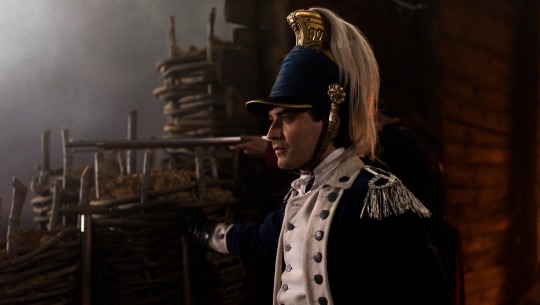

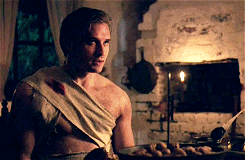
Petition for Seth Numrich to play John Laurens in his biopic if we ever get one, no arguments. He was an incredible Benjamin Tallmadge but he was just giving John Laurens so much and im so here for it 🧎♀️🧎♀️
#amrev#american history#alexander hamilton#john laurens#american revolution#alexander hamilshit#henry laurens#benjamin tallmadge#seth numrich#turn washington's spies
75 notes
·
View notes
Text
don't take either side, & form a partial opinion_ but reflect well before you write, I give this hint, because I know you are an American Zealot & may be in good time an Enthusiast_
Henry Laurens to John Laurens, 12 December 1774
ZEALOT - One passionately ardent in any cause. Generally used in dispraise.
ENTHUSIAST - 1. One who vainly imagines a private revelation; one who has a vain confidence of his intercourse with God. 2. One of a hot imagination or violent passions. 3. One of elevated fancy, or exalted ideas.
Samuel Johnson, A dictionary of the English language (1768)
45 notes
·
View notes